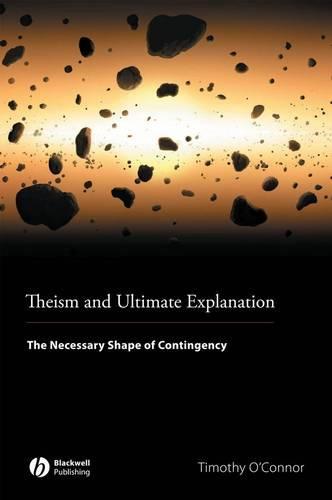Overview
An expansive, yet succinct, analysis of the Philosophy of Religion – from metaphysics through theology. Organized into two sections, the text first examines truths concerning what is possible and what is necessary. These chapters lay the foundation for the book’s second part – the search for a metaphysical framework that permits the possibility of an ultimate explanation that is correct and complete. A cutting-edge scholarly work which engages with the traditional metaphysician’s quest for a true ultimate explanation of the most general features of the world we inhabit Develops an original view concerning the epistemology and metaphysics of modality, or truths concerning what is possible or necessary Applies this framework to a re-examination of the cosmological argument for theism Defends a novel version of the Leibnizian cosmological argument
Full Product Details
Author: Timothy O'Connor (Indiana University, USA)
Publisher: John Wiley and Sons Ltd
Imprint: Wiley-Blackwell
Dimensions:
Width: 14.50cm
, Height: 1.00cm
, Length: 22.40cm
Weight: 0.204kg
ISBN: 9781444350883
ISBN 10: 1444350889
Pages: 192
Publication Date: 20 January 2012
Audience:
College/higher education
,
Postgraduate, Research & Scholarly
Format: Paperback
Publisher's Status: Active
Availability: Out of stock

The supplier is temporarily out of stock of this item. It will be ordered for you on backorder and shipped when it becomes available.
Reviews
?This trim but highly technical volume is indisensable for scholars and graudate-level researchers in the field. Summing Up: Essential. Graduate students and researchers/faculty.? (Choice, 1 October 2012) The collection is a critically important resource for scholars of the philosophy of action. The overall clarity of the entries, moreover, also makes it accessible as a resource for undergraduate and graduate students working in the area. Highly recommended.? (Choice)
?O?Connor does not disappoint those who are used to the high levels of clarity, rigor, and originality that readers of his work on free will and emergence have come to expect from him.? ( Mind , July 2009)<p>?A breathtaking sweep from metaphysics through theology. This is a superb book in the philosophy of religion, the like of whose quality and originality is rare.?<br> Alexander Pruss, Baylor University
Author Information
Timothy O'Connor is Professor of Philosophy at Indiana University Bloomington. He has published widely in the areas of metaphysics, philosophy of mind and action, and philosophy of religion. He is the author of Persons and Causes (2000) and the editor of Agents, Causes, and Events: Essays on Indeterminism and Free Will (1995), Philosophy of Mind: Contemporary Readings (2003), Downward Causation And The Neurobiology Of Free Will (2009), Emergence in Science and Philosophy (2010) and A Companion to the Philosophy of Action (2010).




